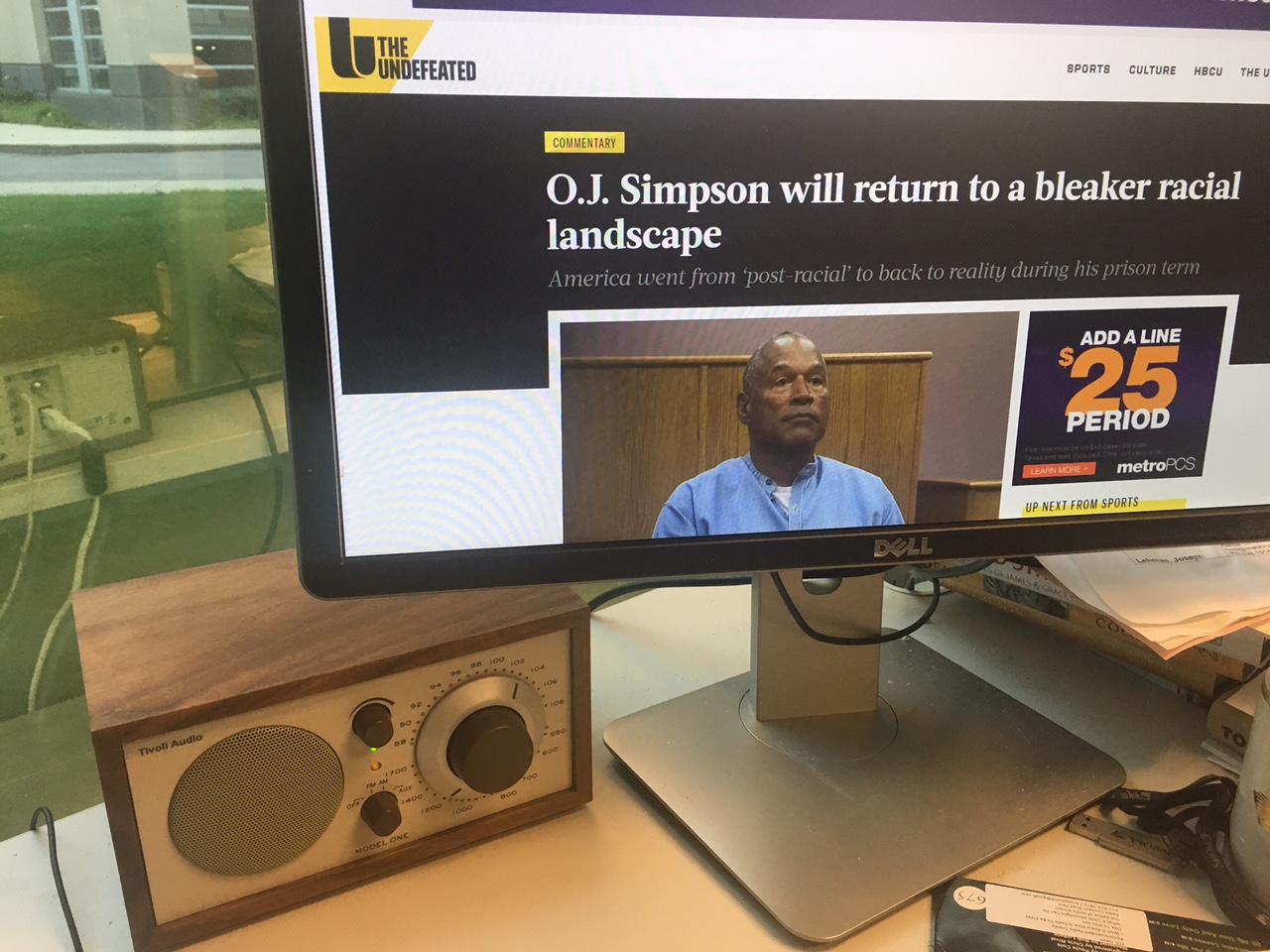What Does the OJ Simpson Saga Mean in the Era of Black Lives Matter?
“He’s not coming out of jail any more conscious then he was before,” politics editor of The Root Jason Johnson says.


OJ Simpson’s life has captivated Americans for decades. It has also become a springboard for some of the toughest racial conversations we’ve had as a nation during that time.
Now that Simpson has been granted parole, what kind of society is he coming back into? Have racial tensions changed during the time he’s been in prison? What does the saga of OJ Simpson mean in the era of Black Lives Matter?
J.A. Adande, ESPN.com senior writer who wrote a column for The Undefeated title, “O.J. Simpson will return to a bleaker racial landscape,” joins Stephen Henderson on Detroit Today to discuss what rejoining modern society looks like for OJ. Adande writes:
O.J. was granted parole six months to the day that former President Barack Obama left the White House. Simpson’s sentence at the Lovelock Correctional Center began one month before Obama took office. There’s some symmetry there, a strange link between the central racial figure from the last decade of the 20th century and the central racial figure from the first decade of the 21st century.
Jason Johnson, politics editor at The Root and professor of political science at Morgan State University, also joins Henderson.
“I don’t think it’s that OJ is entering a more polarized or more racially hostile world,” Johnson says. “If anything I think OJ is entering a more honest world.”
The ways in which the structure of public discourse in America has transitioned from the time Simpson when to prison is also analyzed.
Johnson says in his opinion the greatest punishment Simpson has received is his loss of fame.
Click on the audio player above to hear the full conversation.
